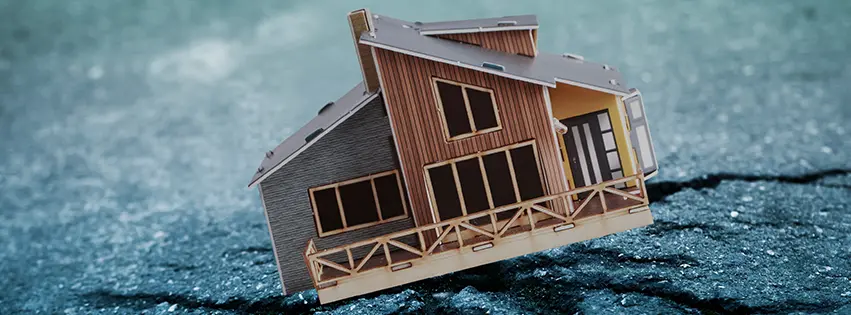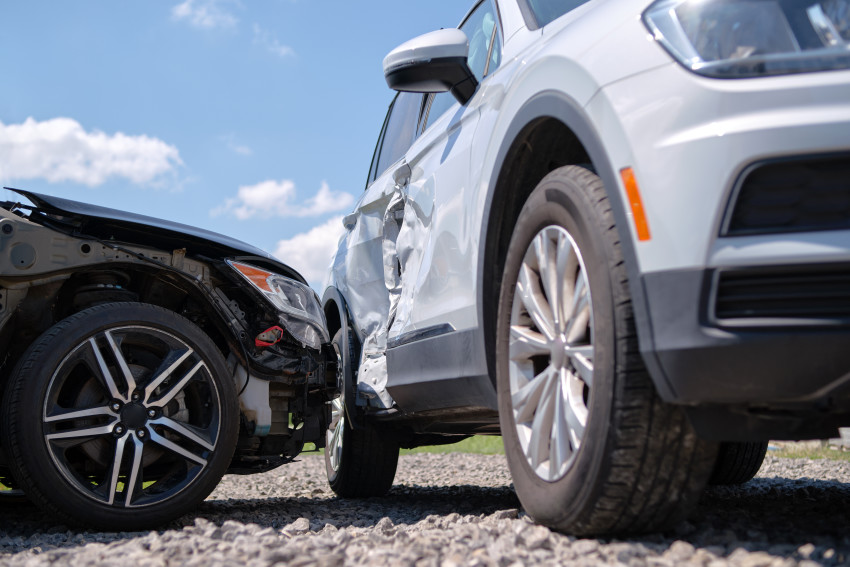
Earthquake Safety: Being Prepared Before, During, And After
Background On Earthquakes In Tennessee
You might not think of Tennessee as an earthquake-prone area, especially compared to states like California, Alaska, Arkansas, and Kentucky, but earthquakes have become much more common in Tennessee lately. According to the United States Geological Survey, the number of earthquakes in Tennessee hovered around just 30-50 per year during the mid-to-late 1990s. That number increased to approximately 150 in the mid-2000s and shot up to nearly 300 in the late 2010s. It's safe to say we're seeing much more seismic activity in Tennessee than we used to.
Earthquakes can occur randomly, but they often center around seismic zones. There are two seismic zones that touch Tennessee: the New Madrid Seismic Zone (NMSZ) in west Tennessee and northeast Arkansas and the East Tennessee Seismic Zone (ETSZ) in east Tennessee. Experts say these areas are particularly likely to experience earthquakes, though earthquakes can occur in other areas. While most earthquakes occur in the eastern and western portions of our state, middle Tennessee also experiences earthquakes.
Three Stages Of Earthquake Preparation: Before, During, And After
Preparation Before An Earthquake
Preparing for an earthquake is essential to protect yourself, your family, and your property. Here are some helpful steps to follow:
Know your risks. Understanding the risks in your area is essential for effective earthquake preparedness. Here are some key hazards to consider:
Steep hills and slopes:
In regions with steep terrain, earthquakes can trigger landslides. Familiarize yourself with the topography of your area to identify potential landslide zones. Take necessary precautions if you live in or near such areas to minimize the risks.
Unstable soil or liquefaction-prone areas:
Some areas may have soil conditions that can amplify the effects of an earthquake. Unstable soil or areas prone to liquefaction can experience the ground becoming soft and losing its ability to support structures during an earthquake. If you reside in or near such areas, it is important to be aware of this risk and take appropriate measures to reinforce your property if needed.
Poorly constructed buildings:
Buildings that are not designed or constructed to withstand seismic activity can pose a significant risk during an earthquake. Identify any structures in your vicinity that may be vulnerable and take appropriate actions to ensure your safety, such as reinforcing your own home or avoiding certain buildings altogether.
Retrofit and reinforce:
Strengthening your home's structure is crucial for minimizing earthquake damage. Consider consulting a professional to assess your property and identify areas that require retrofitting or reinforcement.
Secure heavy items and hazards:
Take the time to secure heavy items and potential hazards in your home. Anchor large furniture, bookshelves, and appliances to prevent them from falling during an earthquake.
Create a disaster plan:
Develop a comprehensive disaster plan for your family. This plan should include evacuation routes, a designated meeting point, and contact information for emergency services and loved ones. Ensure that all family members are aware of the plan and rehearse it regularly.
Create an emergency kit: Assemble a well-stocked emergency kit that includes essential supplies such as:
Non-perishable food
Water
Medication
A flashlight
First aid kit
Batteries
Portable radio
Personal hygiene items
Ensure a week's worth of supplies:
After an earthquake, it may take time for assistance to reach affected areas. It's important to be prepared by storing at least a week's worth of supplies for each family member. Consider the unique needs of children, elderly individuals, and pets when gathering necessary items.
What To Do During An Earthquake
During an earthquake, your safety should be the top priority. Here are some helpful actions to take:
Stay away from hazards:
Quickly identify and steer clear of potential hazards within your immediate vicinity. These hazards may include glass windows, heavy furniture, appliances, bookshelves, or anything that could potentially fall or cause injury.
Take cover in a safe place: When an earthquake occurs, your safety should be the top priority. It's helpful to remember the phrase, “Drop, Cover, Hold On.” This simple mantra serves as a reminder of the three important actions to take during an earthquake:
Drop:
Immediately drop down to the ground to prevent being knocked over by the shaking. By getting low, you reduce the risk of losing your balance and falling.
Cover:
Take cover under a sturdy piece of furniture, such as a table, desk, or bench. These items can provide vital protection from falling objects that may cause injury during the earthquake. Remember to position yourself in a way that your head and neck are shielded.
Hold On:
Hold on firmly to the furniture you are under until the shaking stops. This ensures that you stay protected and minimizes the risk of being moved or injured by the tremors.
Stay inside:
Unless you are in immediate danger, remain indoors until the shaking stops and it is safe to exit. Most injuries during earthquakes occur when people attempt to leave buildings during the shaking. Stay put and wait for official instructions or confirmation that it is safe to evacuate.
Protect yourself in open spaces:
If you are outdoors when an earthquake strikes and there are no nearby buildings or structures to take cover under, move to an open area away from buildings, trees, streetlights, and utility wires. Drop to the ground, cover your head and neck, and wait for the shaking to subside.
What To Do After An Earthquake
Once an earthquake has occurred, it's important to focus on your safety and the recovery process. Here are some friendly steps to take:
Be prepared for aftershocks:
Aftershocks are smaller earthquakes that can follow the initial main shock. Be aware that they can occur in the hours, days, or even weeks following the main event. Stay vigilant and be prepared to take cover if necessary.
Check your gas lines:
If you smell gas or suspect a gas leak after an earthquake, it's crucial to act swiftly. Shut off the gas supply immediately, if you know how to do so safely. Learning this beforehand can prevent any delay or confusion during an emergency. If you're unsure or uncomfortable handling gas lines, don't hesitate to contact the appropriate professionals for assistance.
Wear shoes:
Put on sturdy shoes to protect yourself from broken glass, debris, or other hazards that may be scattered on the ground after an earthquake. Avoid going barefoot to reduce the risk of injury.
Document the damage:
Take photos or videos of the damage caused by the earthquake, both inside and outside your property. This documentation will be invaluable for insurance claims and aid in the recovery process. Be cautious while navigating damaged areas and prioritize personal safety.
Assess and address immediate hazards:
After ensuring your safety, take a moment to assess any immediate hazards around you. This may include downed power lines, damaged walls or ceilings, or potential structural instability. If you identify any life-threatening hazards, such as major structural damage, evacuate the area and seek assistance from emergency services.
Check on your loved ones and neighbors:
Reach out to your family members, friends, and neighbors to ensure their safety and well-being. Offer support and assistance to those who may need it. It's important to come together as a community during challenging times.
If you would like more information about what to do during an earthquake, the Tennessee Department of Commerce and Insurance has put together this earthquake preparedness resource with helpful tips and more.
How Can You Insure Your Property For The Risk Of Earthquakes?
Our agents have built strong relationships with companies that specialize in providing coverage for earthquakes. If you'd like to purchase earthquake insurance, simply contact your agent or visit a Farm Bureau Insurance agent near you. They'll gladly help you navigate the options and find the best solution that fits your needs.
Tennessee Insurance: Read More

What is an Auto Deductible?
October 9, 2024
When it comes to auto insurance, understanding the terminology is crucial to making informed decisions about your coverage. One term that often comes up in discussions about car insurance is the “auto deductible.” Read more

What Is Business Insurance?
December 10, 2024
Whether you are a small business owner or a seasoned entrepreneur, having the right insurance coverage is crucial to protect your assets and mitigate various risks. In this article, we aim to provide you with an in-depth understanding of what business insurance is, its significance, and how it can contribute to your company's success. Read more

What's The Difference Between Term and Whole Life Insurance?
May 31, 2024
Life insurance is a crucial aspect of financial planning, offering peace of mind and financial security for your loved ones in the face of life's uncertainties. In this article, we'll explore the key differences between these two options. Read more
